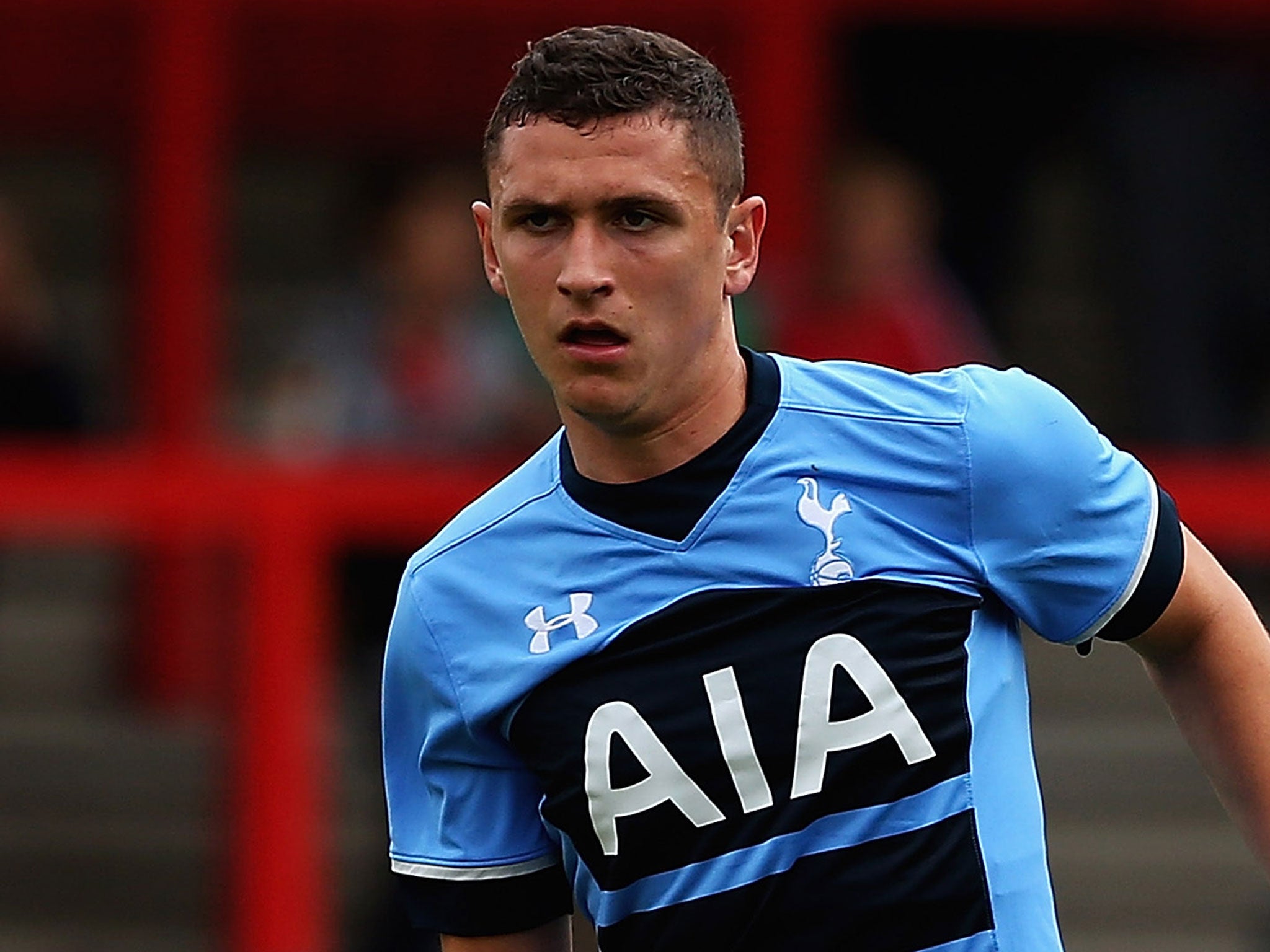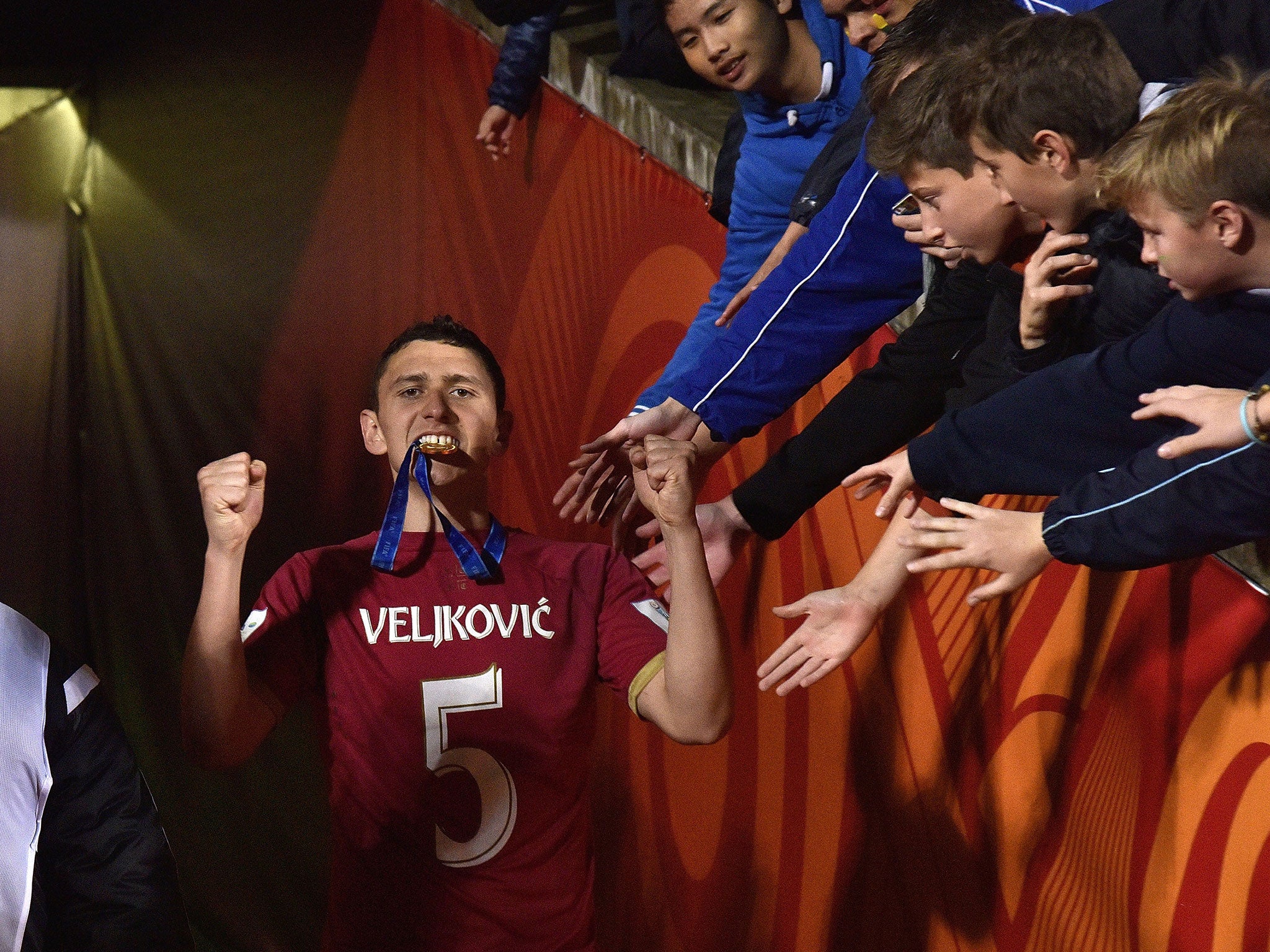Milos Veljkovic: Tottenham's Under-20 World Cup winner wants to make impact in the Premier League, but this season about experience
After success on the international stage with Serbia, the centre-back wants to take that to club level

There is a balcony on Belgrade’s city hall where victorious sportsmen parade their trophies. Despite Serbia’s love of football, only tennis and basketball stars have graced that terrace. Until June, that is, when their young team brought the Under-20 World Cup home, a special victory won in special circumstances.
There were 70,000 people on the streets of Belgrade to welcome them back. It was, without any question, the greatest moment in Serbian football since Red Star Belgrade won the European Cup in 1991.
At the heart of it all was Milos Veljkovic, Tottenham Hotspur’s intelligent 19-year-old centre-back, for whom the proud memories are still fresh. “In Serbia they have not had success, not for a long time, in football,” he remembers. “There were so many people there, I was just looking at them with goosebumps. We had an open-top bus parade, a reception, we celebrated on the terrace for two hours, and before that we met the president.”
When the victorious squad met president Tomislav Nikolic, he told them they were all awarded pensions of up to €2000 per month, to start when they are 35 years old. “Double our pensions”, they gleefully sang, soaking in their new status as national heroes. Their victory was a surprise, even for the five players – including Veljkovic – who also won the European Under-19 Championship in 2013. The talent of this generation of players, born in 1994 and 1995, will be one of the stories of European football over the next decade.
It was not always certain that Veljkovic would go to New Zealand this summer, and he was convinced in June to join up – rather than go to the European Under-21 Championship - by Under-20 coach Veljko Paunovic.
Once there, Veljkovic and team-mates were confident of going far, even given a difficult group of Uruguay, Mali and Mexico. Serbia lost their first game and it is testament to their quality and tenacity that they went on to win their next six, each one of them in circumstances more dramatic than the last.
There was the last-16 tie with Hungary, which Veljkovic calls “the most difficult game”. Hungary went 1-0 up and parked the bus. Serbia equalised in added time and won the game on 118 minutes. Then it was USA in the quarter-finals, a 0-0 draw which went to penalties. Veljkovic missed his kick, Serbia’s eighth, but they still won 6-5.
Then it was Mali again – “a technical, fast, physical team” – in the semi-final. Serbia took the lead, missed chances to double it and conceded an equaliser. “At half-time we felt angry, everyone was a bit down,” says Veljkovic. It went to extra-time, again, Veljkovic headed a corner and Ivan Saponjic bundled it in.
Before the final, there were good-luck video messages from Nemanja Matic and from Novak Djokovic, a veteran of that famous Belgrade balcony, who was preparing for his own final at Wimbledon. Coach Paunovic harked back to the famous Yugoslavia side – Davor Suker, Predrag Mijatovic, Robert Prosinecki and the rest – who won the equivalent of this competition in 1987. “Can you remember when Yugoslavia won the World Cup in Chile,” Paunovic asked, “who was the team they played in the final? Was it Germany? Was it Brazil?” The speech worked. “After that we realised we had to win it,” Veljkovic said. “Second is not good enough. I’d rather be third than second. We knew that we had to win.”
Serbia went 1-0 up before Brazil briskly equalised. It went to extra-time, but Serbia were confident. “We thought we were the favourites,” he says, “because we were the kings of extra-time. We won every game in extra-time.” Sure enough, two minutes before penalties, Nemanja Maksimovic finished off a counter-attack and that was that.

This remarkable success – as well as the dramatic manner of it – Veljkovic attributes to their mental strength. “The Serbians have a different mentality from other national teams,” he says. “We like to be the underdog. We use it as an advantage for us. Serbians have a mentality like Germans: hard working, never give up. That is what we showed in the World Cup.”
There is a lot of skill in that team too. Veljkovic identifies this group, the 1995 bracket, as “more technical and quicker” than the 1994 generation, who are “really physical”, as typified by his great friend Aleksandar Mitrovic.
Through it all Veljkovic provided a calm presence at centre-back, the position he prefers at international level. “International football is more technical,” he explains. “The Championship is a really physical league, which is why I prefer to play in defensive midfield there, because at centre-back you need to be bigger, stronger, or taller.” As a defender who relies more on skill than strength, Veljkovic sees himself as closer in style to Matija Nastasic than Nemanja Vidic.
Veljkovic, who grew up in Basel in Switzerland, is certainly pleased that he made the decision to play for his parents’ country. “I wanted to play a bit for Switzerland at a young level, because I wanted people to see me,” he says, and it worked, as Tottenham saw his one game for Switzerland Under-16s and signed him from FC Basel. “But I always wanted to play for Serbia. I feel more pride to play for them, because I tried to convince people I made the right decision.”
Veljkovic is now four years into his time in England, and his spoken English is immaculate. He now hopes that his domestic career will start to match the success of his international one. After two frustrating loans at Middlesbrough and Charlton Athletic last year, this summer was especially important to Velkjovic. But he proved himself again and now wants to do that this season, on loan in the Championship.
“Hopefully I showed what I can do in the World Cup,” he says. “I want to play in the best league in the world. This year, I just want to get more experience, more games in the Championship or abroad. At international level I have done well. Now I need to make the next step at club level.”
Join our commenting forum
Join thought-provoking conversations, follow other Independent readers and see their replies
0Comments